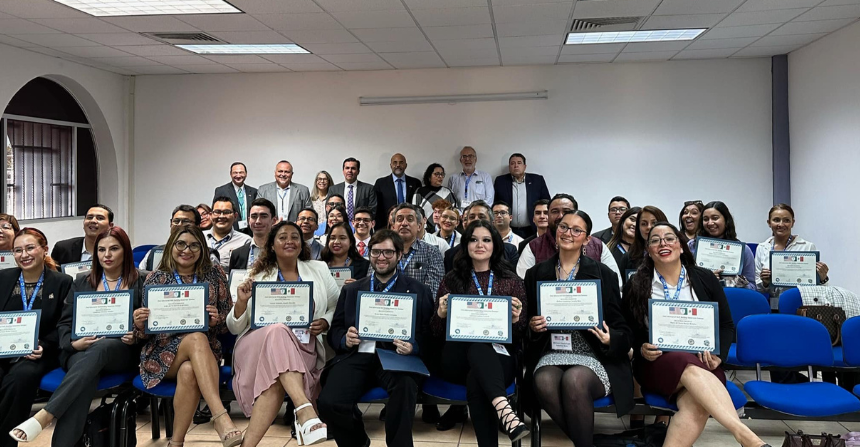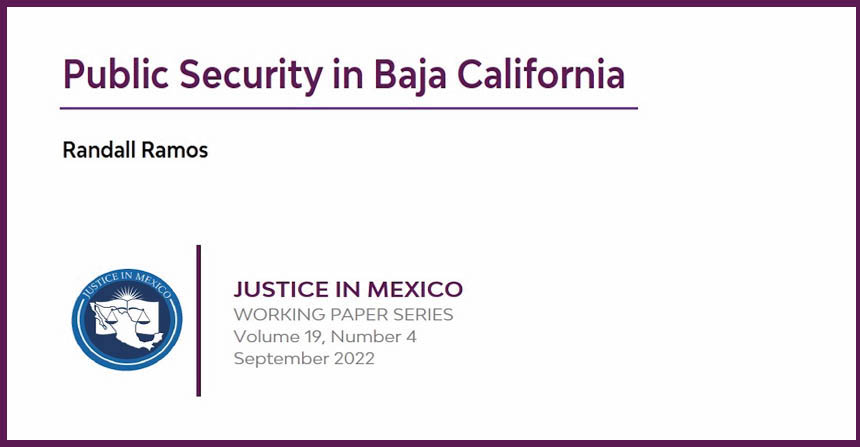 (03/02/12)- On Friday, March 2, the Trans-Border Institute released its the third annual special report on drug violence in Mexico. The authors of the study, Cory Molzahn, Viridiana Ríos, and David Shirk, conducted a comprehensive analysis of newly available data sources tracking organized crime and drug related killings in Mexico.
(03/02/12)- On Friday, March 2, the Trans-Border Institute released its the third annual special report on drug violence in Mexico. The authors of the study, Cory Molzahn, Viridiana Ríos, and David Shirk, conducted a comprehensive analysis of newly available data sources tracking organized crime and drug related killings in Mexico.
This report finds that violence rose significantly by the end of 2011. There were over 50,000 organized crime murders in Mexico documented by Mexican government and media sources. Such violence grew less sharply in 2011 than in the previous year, but now causes over half of all homicides and has spread to new states and municipalities throughout Mexico. Violence declined along the U.S.-Mexico border, moving south, and increasingly targets authorities, reporters, and vulnerable populations. On average, for every day of 2011, 47 people were killed, three of whom were tortured, one of whom was decapitated, two of whom were women, and ten of whom were young people whose lives were cut short by violence.
While some drug cartels remain intact, others have deteriorated and diversified. With the exception of the two most powerful drug trafficking organizations, the Sinaloa Cartel and Los Zetas, Mexican organized crime groups have weakened, splintered, and become involved in a more diverse array of lower level criminal activities, including kidnapping, extortion, and other crimes that have a more direct effect on the general population.
The authors observe that U.S.-Mexico counter-drug collaboration remains strong, with room for improvement. Nearly $2 billion in U.S. aid to help fund Mexican and Central American counter-narcotics initiatives has boosted regional cooperation. However, numerous human rights violations have surfaced in Mexico, while U.S. investigations allowed guns and cash to flow into the hands of organized crime groups in Mexico. Greater oversight and coordination are needed, as well as a clear commitment to bilateral cooperation beyond the 2012 presidential elections.
The report suggests that Mexico urgently needs to implement police and judicial sector reforms. To the extent that the federal government has previously relied on large force deployments to restore order in areas where violence is highly concentrated, the tendency toward widely dispersed, mass violence pres- ents a significant challenge. The authors recommend a greater focus of resources and attention to the challenges of local police reform, state-level judicial reforms, and penitentiary reform at all levels.
The authors argue for more serious consideration of alternatives to current drug policy. Currently, there is little evidence that proposals for drug decriminalization or legalization—particularly half- measures such as allowing marijuana use for medical purposes—will have any significant effect on levels of violence in Mexico. However, the case for legalization is weakened by a lack of frank policy discussions about its possible implications; such discussions remain taboo in the halls of power despite growing political support for legalization among ordinary citizens in both countries.
To read the full report, please visit: http://justiceinmexico.files.wordpress.com/2010/07/2012-tbi-drugviolence.pdf





Pingback: Institute issues report on drug violence in Mexico | Rio Grande Digital